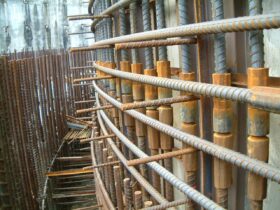During a pre-purchase inspection, the inspector may uncover issues ranging from minor cosmetic flaws to major structural problems. Some of the most significant issues that are revealed include:
- Foundation problems – Cracks, settling, or other damage to the foundation is costly and may indicate more serious structural issues.
- Roof damage – If not addressed promptly, a damaged or ageing roof leads to leaks, water damage, and other problems.
- Electrical system defects – Outdated or faulty wiring can pose a severe safety hazard and require extensive repairs or replacement.
- Plumbing issues – Leaky pipes, outdated fixtures, or sewer line problems cause water damage and are expensive to fix.
- HVAC system failure – An old or malfunctioning heating and cooling system is costly to repair or replace and may affect the home’s comfort and energy efficiency.
- Pest infestations – The presence of termites, carpenter ants, or other wood-destroying insects causes significant damage to the property’s structure.
If any significant issues are found during the inspection, you must grasp your options and know how to proceed.
Renegotiate the terms of the sale
If the inspection reveals significant problems, you may request that the seller make the necessary repairs before closing or offer a credit to cover the cost of the repairs. If you have a strong interest in the property and are open to collaborating with the seller to reach a favourable agreement, this could be a viable option. However, it’s crucial to maintain a realistic outlook regarding the issues and the expenses involved. Consider other options if the repairs are extensive or the seller is unwilling to make concessions.
Walk away from the deal
If the pre-purchase inspection reveals significant problems that are too costly or complicated to address, walking away from the deal may be the most prudent choice. Most purchase agreements include an inspection contingency that allows you to cancel the contract if significant issues are found during the inspection period. While it is disappointing to walk away from a property you had your heart set on, it’s important to remember that purchasing a home with significant defects leads to financial strain and headaches down the road. By walking away, you protect yourself from potential legal disputes and costly repairs and focus on finding a property that better meets your needs and budget.
Proceed with caution
In some cases, you may proceed with the purchase despite the issues revealed in the inspection. This might be the case if you’re purchasing a fixer-upper or if the problems are relatively minor and you’re prepared to tackle them yourself. It’s essential to proceed with caution when considering this option. Before moving forward, consider the following:
- Obtain detailed repair estimates from licensed contractors before beginning work.
- Factor in the time and energy required to manage and complete the repairs, especially if you plan to do some of the work yourself.
- Consider the potential impact on your budget and financing options, as some lenders may require that certain repairs be completed before approving the loan.
- Consult with your real estate agent and attorney to understand how to protect your interests.
A pest inspection entails a detailed assessment of the property to identify signs of infestation, such as visible damage, mud tubes, or discarded wings. If evidence of infestation is discovered, the inspector will suggest a plan of action, which could involve repairs. For building inspections in Sydney check vitalbuildinginspection.com.au/pricing/.










